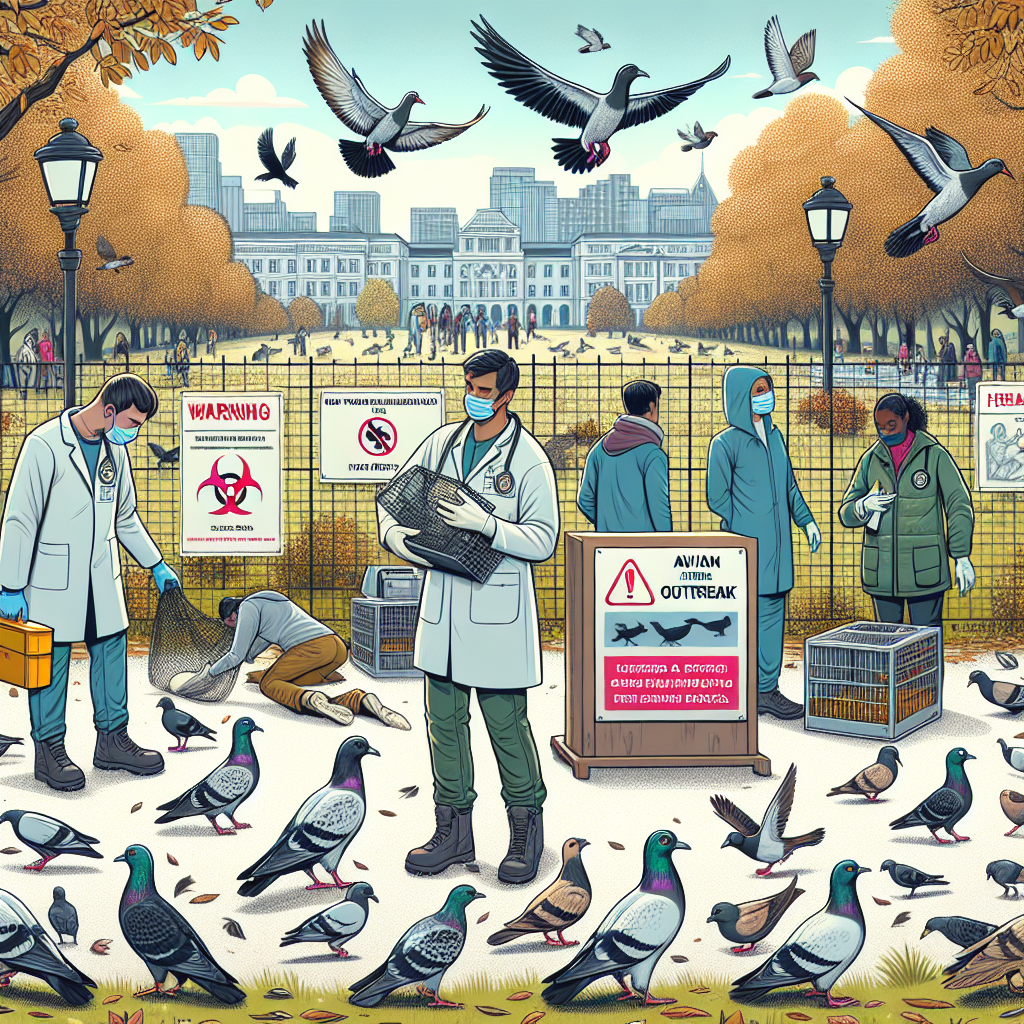SA Launches First National Poultry Vaccination Drive Against Bird Flu
Agriculture Minister John Steenhuisen made the announcement during a media briefing on Tuesday, lauding the permit approval as a “milestone in animal health and food security.”

- Country:
- South Africa
In a historic and proactive move to shield its poultry sector from the devastating effects of avian influenza, South Africa is set to begin its first-ever national poultry vaccination campaign. The campaign marks a pivotal shift in the country’s animal health strategy as it tackles the persistent threat of highly pathogenic avian influenza (HPAI), a disease that has ravaged poultry populations globally.
Green Light for Astral Foods
The breakthrough came following the issuance of a poultry vaccination permit to Astral Foods Limited on 30 June 2025, allowing the prominent poultry producer to commence vaccinations at one of its broiler breeder farms. The vaccine—specifically targeting the H5 strain of the virus—is already being used successfully in several other countries with advanced avian flu control programs.
Agriculture Minister John Steenhuisen made the announcement during a media briefing on Tuesday, lauding the permit approval as a “milestone in animal health and food security.”
200,000 Birds to be Vaccinated in Initial Phase
The campaign’s initial phase will involve the vaccination of 200,000 broiler breeders, representing approximately 5% of Astral Foods' total breeding stock, which carries a market value of about R35 million. These breeders form a crucial part of the production chain, and safeguarding them is seen as key to ensuring sustained poultry supply across the country.
Minister Steenhuisen stressed the importance of building flock immunity to minimise losses.
“The 2023 outbreak resulted in millions of birds being culled, leading to severe disruptions in the supply of poultry products. This had dire consequences not only for poultry farmers but also for consumers, who faced soaring prices and limited access to eggs and chicken,” he noted.
Partnership for National Resilience
The campaign is being rolled out as a collaborative effort between the Department of Agriculture, Land Reform and Rural Development (DALRRD) and the South African poultry industry. The initiative is underpinned by a shared goal: to protect the poultry value chain, which supports thousands of jobs and contributes significantly to the country’s food security.
“This initiative is not only about protecting poultry—it’s about protecting people’s livelihoods, nutrition, and economic stability,” said Steenhuisen.
Background: A Sector Under Siege
South Africa’s poultry industry has faced numerous challenges in recent years. The 2023 HPAI outbreak forced the culling of millions of chickens, leaving a lasting impact on the industry and consumers alike. At the time, the country was heavily reliant on import bans, movement restrictions, and culling strategies, which, while effective to an extent, were not sustainable as long-term solutions.
Vaccination has now emerged as the next frontier in avian disease management, following scientific advancements and successful international models. South Africa's adoption of this approach signals its readiness to align with global best practices and reduce reliance on reactionary containment measures.
International Implications: Brazilian Poultry Ban
The urgency of the campaign is further underlined by the suspension of poultry imports from Brazil, one of South Africa’s largest suppliers. The suspension was enacted in May 2025 following an H5N1 avian flu outbreak in Brazil, confirmed by that country’s Ministry of Agriculture and Livestock on 15 May.
As a result, South Africa is now even more dependent on stabilizing its domestic poultry production, making this vaccination drive not just timely but economically critical.
Looking Ahead
While the current permit only covers one farm under Astral Foods, officials have indicated that a broader national vaccination strategy is under development. This will potentially include layers, other broiler operations, and small-scale poultry farmers, once safety and efficacy data from the pilot program are reviewed.
Biosecurity protocols, data tracking, and monitoring mechanisms are being put in place to ensure the campaign’s success and to guard against unintended consequences such as viral mutation or vaccine resistance.
Minister Steenhuisen concluded by urging continued public and private sector collaboration to build a resilient, self-sufficient poultry industry:
“Our goal is to never again find ourselves in a situation where we must choose between public health and food availability. Vaccination is a game-changer.”










